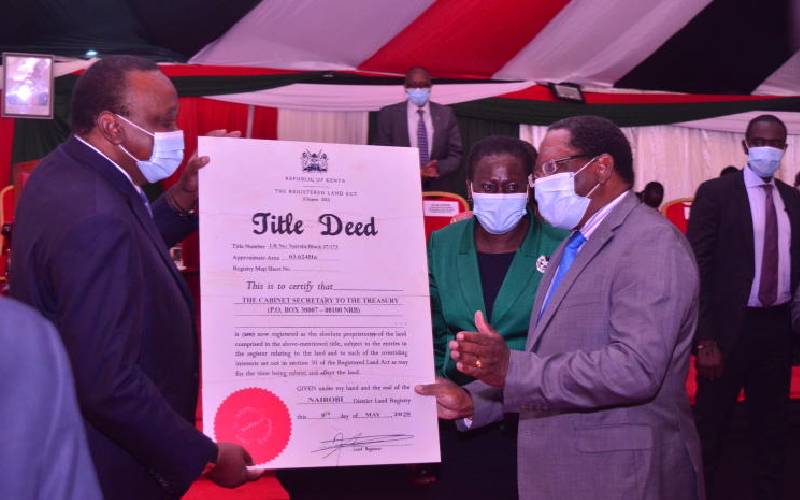×
The Standard e-Paper
Kenya’s Boldest Voice

President Uhuru Kenyatta hands over a title deed to Keriako Tobiko Cabinet Secretary for Environment during flagging off vehicles for the National Titling Programme. [Wilberforce Okwiri,Standard]
Nairobi County Assembly is banking on the issuance of title deeds to public open spaces to keep away land grabbers.